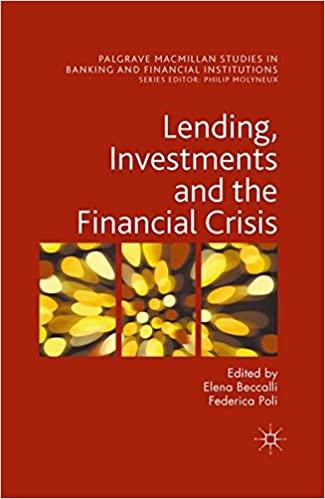Answered step by step
Verified Expert Solution
Question
1 Approved Answer
William is the financial consultant for Farmer Buck, who is a goat milk farmer, and he wants to merge into ranching. Farmer Buck tasked William
William is the financial consultant for Farmer Buck, who is a goat milk farmer, and he wants to merge into ranching. Farmer Buck tasked William with creating a mathematical model/formula as the beginning of understanding the finances of ranching.
Make the following assumptions in your answers and mathematical models/formulas:
1) The gestation (pregnancy) period of a cow is 10 months, and a cow gives birth to only one calf at a time (no twins).
2) When a cow gives birth to a calf, she will not be bred again for the 8 months she is lactating (the cow is lactating and wont be bred again until the calf is weened in 8 months after the calfs birth).
3)The mortality rate of calves dying in the 8 months before they are weened is 10%.
4) The cows are bred at the middle of the month.
5) Head (herd size) is based on cows (adult females) alone (not bulls or calves).
6)Assume heifers (unbred cows) have a market price of $1,200 and bulls have a market price of $1,300.
7) Assume all calves that are bulls are raised (held on the ranch) for one year before being sold at auction for market price. However, heifers are raised for one year before being traded at auction for a one-year old replacement cow, for breeding purposes.
8) Head (herd size) is pregnant adult cows+nonpregnant adult cows at any given time, not including bulls or calves.
9) There is 50% chance of a calf being a heifer (female cow) or a bull (male cow). Female calves are never sold, they are what's called "replaced" with another one-year old calf from a different ranch.
Questions:
Question 1: What herd size would you need to have one calf per month (12 calves per year), given all assumptions? In other words, what herd size would he need so that there is always one calf being born per month? Provide a mathematical model/formula for William where he could change the factors and variables as he pleases if changes of assumption arise, so he could plug in changes variables (weening time becomes 6 months, Farmer Buck wants two calves per month, etc.).
Question 2: What herd size of cows would Farmer Buck need to make $300,000 at year-end, given all assumptions? In other words, what herd size would Farmer Buck need so his herd consistently giving birth to $300,000 worth of $1,300 bulls every year? Provide a mathematical model/formula for William for him to use where he could change the factors and variables if new data on assumptions rise up and would allow him to plug in (weaning time drops to 5 months, market price of bulls increases to $1,800, etc.).
Step by Step Solution
There are 3 Steps involved in it
Step: 1

Get Instant Access to Expert-Tailored Solutions
See step-by-step solutions with expert insights and AI powered tools for academic success
Step: 2

Step: 3

Ace Your Homework with AI
Get the answers you need in no time with our AI-driven, step-by-step assistance
Get Started


